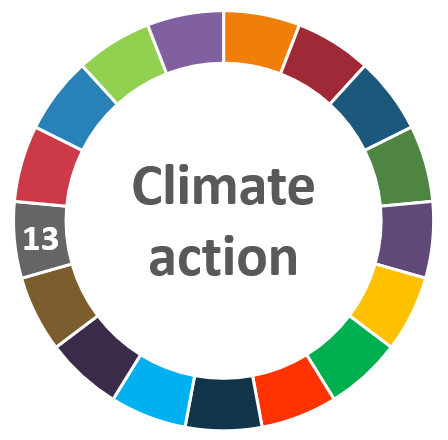
ΑΙhub.org
Digital technology and the planet – a report from the Royal Society

In December 2020, the Royal Society published a report on Digital Technology and the Planet: Harnessing computing to achieve net zero. In his foreword, Professor Andy Hopper, Vice President of the Royal Society and Professor of Computer Technology, University of Cambridge writes: “Nearly a third of the 50% carbon emissions reductions the UK needs to make by 2030 could be achieved through existing digital technology.”

The report identified four key areas to help secure a digital-led transition to a low carbon future. Within those four areas were a total of eleven recommendations:
Building a trusted data infrastructure for net zero
- Recommendation 1: The net zero transition should be data-led, with governance arrangements in place that enable the safe and rapid use of data to support the achievement of the net zero target.
- Recommendation 2: The UK Government has a responsibility to set an example of best practice through well governed use of data.
- Recommendation 3: Set up a taskforce for digitalisation of the net zero transition, to identify priorities across sectors and work with tech companies to ensure systems can be scrutinised, are secure, and benefit communities.
Optimising our digital carbon footprint
- Recommendation 4: The tech sector should lead by example and make data accessible to allow the greater monitoring of its energy consumption and carbon emissions.
- Recommendation 5: Tech companies should further promote the use of renewable energy for computing activities, for example by scheduling these activities, where appropriate, for times that maximise the use of intermittent renewable energy sources.
- Recommendation 6: Regulators should develop guidance about the energy proportionality of digital applications.
Establishing a data-enabled net zero economy
- Recommendation 7: Action is needed to build digital and net zero skills at all levels – from basic literacy to advanced data analysis skills, and from an appreciation of efficiency to an in-depth understanding of carbon externalities. Re-tooling the workforce in this way will require a coordinated approach to nurturing data science and net zero skills across the country
- Recommendation 8: The UK Government should use COP26 as an opportunity to lead the way in establishing ambitious programmes that bring together governments, industry and the third sector – committing funding, data, skills, and computing facilities – to develop computing as infrastructure for the planet.
Setting research and innovation challenges to digitalise the net zero transition
- Recommendation 9: The UK Government’s policies should be updated to reflect the net zero imperative.
- Recommendation 10: Regulators should provide frameworks to help business innovating in the space of digital applications for net zero, acknowledging the need for a step change in innovation to adapt to the net zero agenda and enable the green recovery.
- Recommendation 11: Creating a stronger innovation ecosystem for net zero and distributing the benefits: Government should use new models of challenge-led innovation to tackle the net zero challenge, with a greater focus on digitalisation.
Find out more
Read the report in full:
Digital Technology and the Planet: Harnessing computing to achieve net zero report (PDF).
This article from the Royal Society summarises the contents of the report.
tags: Focus on climate action, Focus on UN SDGs










